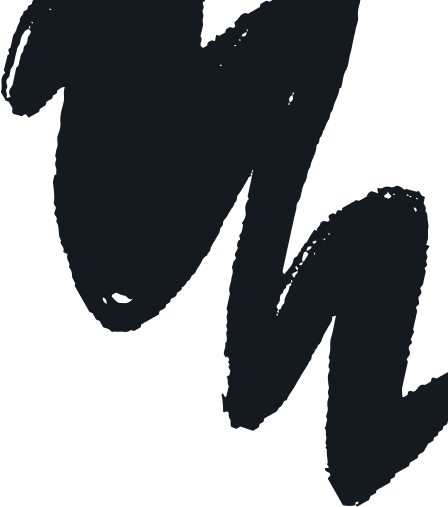.webp)
What the New York Times got wrong about homeschooling
What the New York Times got wrong about homeschooling
What the New York Times got wrong about homeschooling
Emma Goldberg's recent piece in the New York Times on America's homeschooling movement gets a lot right. Her reporting from the Great Homeschool Convention in Texas is vivid and immersive, and she's 100% correct that something significant is happening.
The numbers don't lie: homeschooling has more than doubled since the pandemic.
But Goldberg's safari-style narrative – studying homeschoolers like exotic specimens at a water park resort – also conceals the real story about what's happening with education outside of traditional classrooms.
We found three main misunderstandings that are far from unique to this article.
First, it paints a diverse movement that spans the political and cultural spectrum as motivated by uniform concerns.
Second, it frames parental confidence as anti-expert sentiment.
Finally, it presents a forward-looking revolution as a backwards retreat, ignoring novel educational approaches that are preparing children for a rapidly changing world.
Let's correct each of these misunderstandings in order.
Correction #1: There Is No Single "Movement"
Readers of the article will come away with the impression that homeschoolers are mostly cut from the same cloth: social conservatives motivated by religious beliefs.
That label has some historical basis. In the late 1970s and early '80s, Dr. Raymond Moore and his wife Dorothy helped galvanize a Christian homeschooling movement with books like Better Late Than Early, arguing that early institutional education harmed young children emotionally and spiritually.
But at the same time, a different current of thought was taking shape through figures like John Holt, who envisioned homeschooling as a liberatory, child-led alternative to standardized schooling. This "unschooling" philosophy attracted progressives, libertarians, and skeptics of institutional systems.
Today, homeschooling is neither uniform nor fringe. As Kerry McDonald, host of the LiberatED podcast and author of the forthcoming book Joyful Learning (August 2025), puts it:
"More families are attracted to homeschooling and related approaches because they offer the educational personalization and flexibility that are often missing in a conventional classroom."
Her book and podcast explore the diversity of motivations and creative schooling options now available to families—starting with the premise that joyful learning should be the norm, not the exception.
Education is opening up into a kaleidoscope of approaches. Some families follow Charlotte Mason's literature-rich philosophy; others embrace Wild + Free's focus on nature and wonder. Others still adopt unschooling, classical education, forest schooling, or project-based learning. And increasingly, families blend these methods to suit their children's personalities and states of development.
From microschools to hybrid co-ops, families assemble their own personalized learning ecosystems. A child might attend microschool three days weekly, mix online courses with apprenticeships, or split time between forest programs and online STEM tutoring. The rigid categories—public, private, homeschool—are dissolving into something more flexible.
There's no single "homeschool movement"—just millions of families customizing learning to fit real life.
The article's premise—that homeschooling fractures shared American values—gets it backwards. What's fracturing isn't shared values, but the delivery mechanism. For decades, education was one-size-fits-all. Today's families across the political spectrum reject that model in favor of personalization.
Research from Angela Watson's Hopkins Homeschool Research Lab confirms this: 29% of homeschoolers identify as Democrats—far from the stereotype the Times reinforces.
Rather than seeing this as another instance of political polarization, it's better understood through the lens of growing demand for personalization in all areas of our lives. We personalize restaurant orders, Spotify playlists, workouts, and newsfeeds. Why not education?
Correction #2: Parents are Coordinators of Expertise, Not Know-It-Alls
The article's second blind spot treats parental confidence as anti-expert sentiment. It quotes TikTok homeschool influencer Jessica Ellis, a former public school teacher:
"I truly believe there is nobody—nobody in the world—that is more equipped to teach your child than you."
Goldberg frames this as hubris. (Really? Not even a trained AP biology teacher?) But this misses Ellis's deeper point: parents don't claim superior subject knowledge—they correctly assert that they know and care about their children in ways no expert can.
Dr. Claire Honeycutt, a neuroscientist who left her tenured professorship to homeschool, embodies this distinction:
"You may not know everything some teacher knows, but you know your kid, and you'll fight to ensure they get everything they need."
While she's fully credentialed in science, she's had to learn other subjects alongside her kids. "I didn't know any history. So I've had to learn a lot… and as I'm teaching my kids, I'm getting this education that I didn't receive."
Parents aren't claiming omniscience; they just have the confidence to find the tools, guides, and conditions their kids need to thrive. As Honeycutt puts it, parents coach more than command.
Corey DeAngelis, author of The Parent Revolution, makes much the same point:
"You don't have to be a surgeon to choose your child's doctor, and you don't need a teaching degree to know what's best for your child's education."
Furthermore, the right comparison for most homeschoolers isn't parents versus world-class teachers. The question is whether parents offer something better than what their local boundary district school delivers. In many places, that bar is shockingly low.
"In Chicago," DeAngelis notes, "there are 30 to 40 schools with zero percent math proficiency rates—parents can do better than zero percent."
This matters because expertise outside the classroom is abundant today. Outschool connects children with specialized instructors worldwide. Khan Academy provides world-class instruction in nearly every subject (to say nothing of its AI tutor). Even Alpha School, a full-time private school marketing itself as a future-facing alternative, has replaced traditional teachers with "guides" who facilitate learning through AI-powered adaptive apps.
"Instead of focusing on lesson plans and lectures," explains Alpha School founder MacKenzie Price, "our guides focus on motivational and emotional support and mentorship."
Like parents, their job is knowing what motivates each kid—not having all the answers.
Correction #3: Parents are Preparing for Tomorrow, Not Yesterday
Perhaps the article's biggest misunderstanding is its backward-looking frame. When Goldberg quotes a conference speaker advising against college (except STEM), it's presented as regressive alarmism.
But this reflects an increasingly mainstream opinion, backed by ample data. A Gates Foundation survey found only 58% of current high schoolers believe "a good job requires a college degree." According to the Federal Reserve, nearly 40% of recent college grads are underemployed (i.e., working in jobs that don't require a degree). Average student loan debt exceeds $37,000.
Families aren't retreating from reality—they're asking forward-thinking questions: How do we prepare children for nonexistent jobs? For careers prioritizing adaptability over credentials?
Education analyst Michael B. Horn sees a need to rethink education's entire value network. Horn isn't anti-college—he co-authored Choosing College to help young people make better learning decisions.
"We're seeing a move from one-size-fits-all to something far more customizable," he says.
At OpenEd, we see families mixing project-based learning with rigorous academics, prioritizing communication and emotional intelligence alongside math and science. They're building portfolios and businesses, not just padding GPAs.
Even the NY Times' own reporting supports this reframe. Paul Tough's recent article "Have We Been Thinking About ADHD All Wrong?" reveals how schools may misclassify children as "disordered" when their learning styles don't match classroom norms. ADHD often emerges in children expected to sit still six hours daily—something developmentally unnatural for many young brains.
Are kids broken, or is the system?
* * *
It might be just as misleading to generalize about "the system" as "the homeschool movement."
At OpenEd, for example, we partner with innovative public school districts to provide thousands of families world-class curricula outside traditional classrooms. "The system" often works well for many families who occasionally need something different—like during the pandemic, when traditional approaches failed numerous families and we saw a flood of new interest in our hybrid model.
Where Goldberg sees a fracturing, we see a refactoring (programming lingo for restructuring the system to make it cleaner, more efficient, and adaptive).
Few parents reject the system entirely—most recognize its limitations. Some walk away completely; others take pieces and build something more responsive: Microschools. Online academies. Hybrid charters. Co-ops. Apprenticeships. Tutors. Forest schools. Sports teams. Dual enrollment. Khan Academy. YouTube.
Again, there's no single "home-school movement"—just millions of decisions by parents who've stopped outsourcing judgment. But whether parents identify as home-schoolers, homeschoolers, or something else entirely, the opening up of education is here to stay.
Subscribe to The OpenEd Daily
Join 20,000+ families receiving curated content to support personalized learning, every school day.
.webp)
.avif)


.png)
.png)
